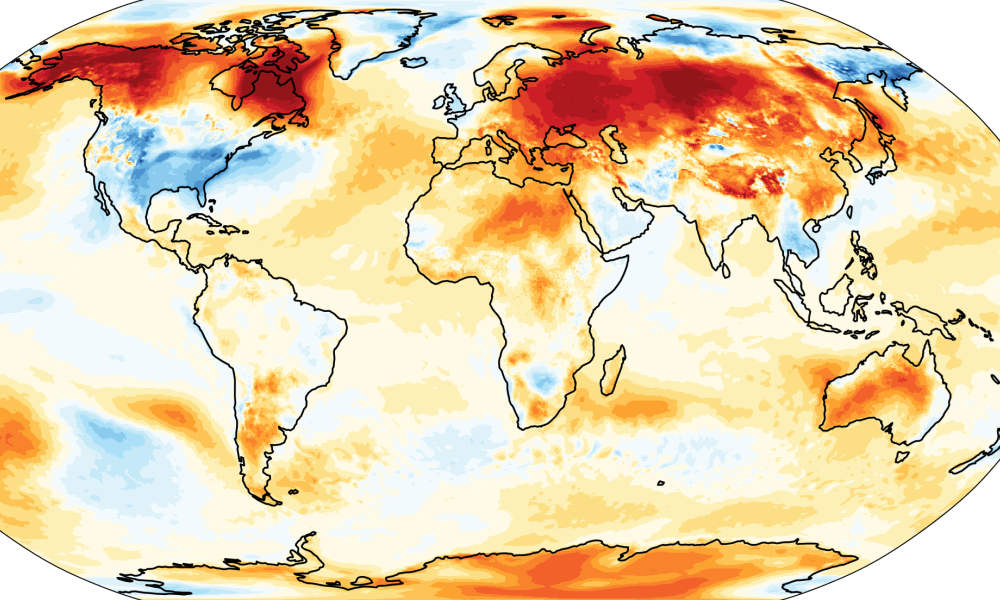World
Earth saw its hottest January on record

Earth has experienced its warmest January on record, according to new data published by the Copernicus Climate Change Service (C3S). Average temperatures were above the pre-industrial level for the 18th month in the last two years.
The average surface air temperature in January 2025 was 55.8°F (13.23°C), which is 3.15°F above pre-industrial levels. This marks the 18th month in the last 19 months in which the global average temperature has surpassed pre-industrial levels, according to the C3S report.
The 2.7°F (1.5°C) threshold for climate change comes from the Paris Agreement, based on decades of scientific consensus and studies. Under the agreement, global leaders committed to limiting warming to well below 2°C and striving for 1.5°C above pre-industrial levels to mitigate climate risks.
Temperatures were above average across Antarctica, northwest Canada, Alaska, and Siberia, as well as southern and eastern Europe, southern South America, Africa, and much of Australia.
January data also showed that the average sea surface temperature (SST) was 69.4°F (20.78°C), the second-highest on record for the month.
SSTs were below average over the central equatorial Pacific but close to or above average in the eastern equatorial Pacific, indicating a slowing or stalling of the transition toward La Niña conditions. Meanwhile, sea temperatures remained “unusually high in many other ocean basins and seas.”
January also brought wetter-than-average conditions to western Europe, Canada, Alaska, Australia, and Brazil, while drier-than-average conditions were observed in the southwestern U.S. and northern Mexico, northern UK and Ireland, eastern Spain, the Middle East, Central Asia, eastern China, and southern Africa, Australia, and South America.
Arctic sea ice reached its lowest January extent on record, at 6% below average, according to the report. Antarctic sea ice extent was 5% below average, a contrast to the record or near-record levels observed in 2023–2024.
“January 2025 is another surprising month,” said Dr. Samantha Burgess, Deputy Director of C3S. “It continues the record temperatures observed over the past two years, despite the development of La Niña conditions in the tropical Pacific and their temporary cooling effect on global temperatures.”

-

 Health4 days ago
Health4 days agoFrance confirms 2 MERS coronavirus cases in returning travelers
-

 Health6 days ago
Health6 days ago8 kittens die of H5N1 bird flu in the Netherlands
-

 Entertainment4 days ago
Entertainment4 days agoJoey Valence & Brae criticize DHS over unauthorized use of their music
-

 Legal1 week ago
Legal1 week ago15 people shot, 4 killed, at birthday party in Stockton, California
-

 US News6 days ago
US News6 days agoFire breaks out at Raleigh Convention Center in North Carolina
-

 US News1 day ago
US News1 day agoMagnitude 7.0 earthquake strikes near Alaska–Canada border
-

 Health5 days ago
Health5 days agoEthiopia reports new case in Marburg virus outbreak
-

 Legal3 days ago
Legal3 days agoWoman detained after firing gun outside Los Angeles County Museum of Art




